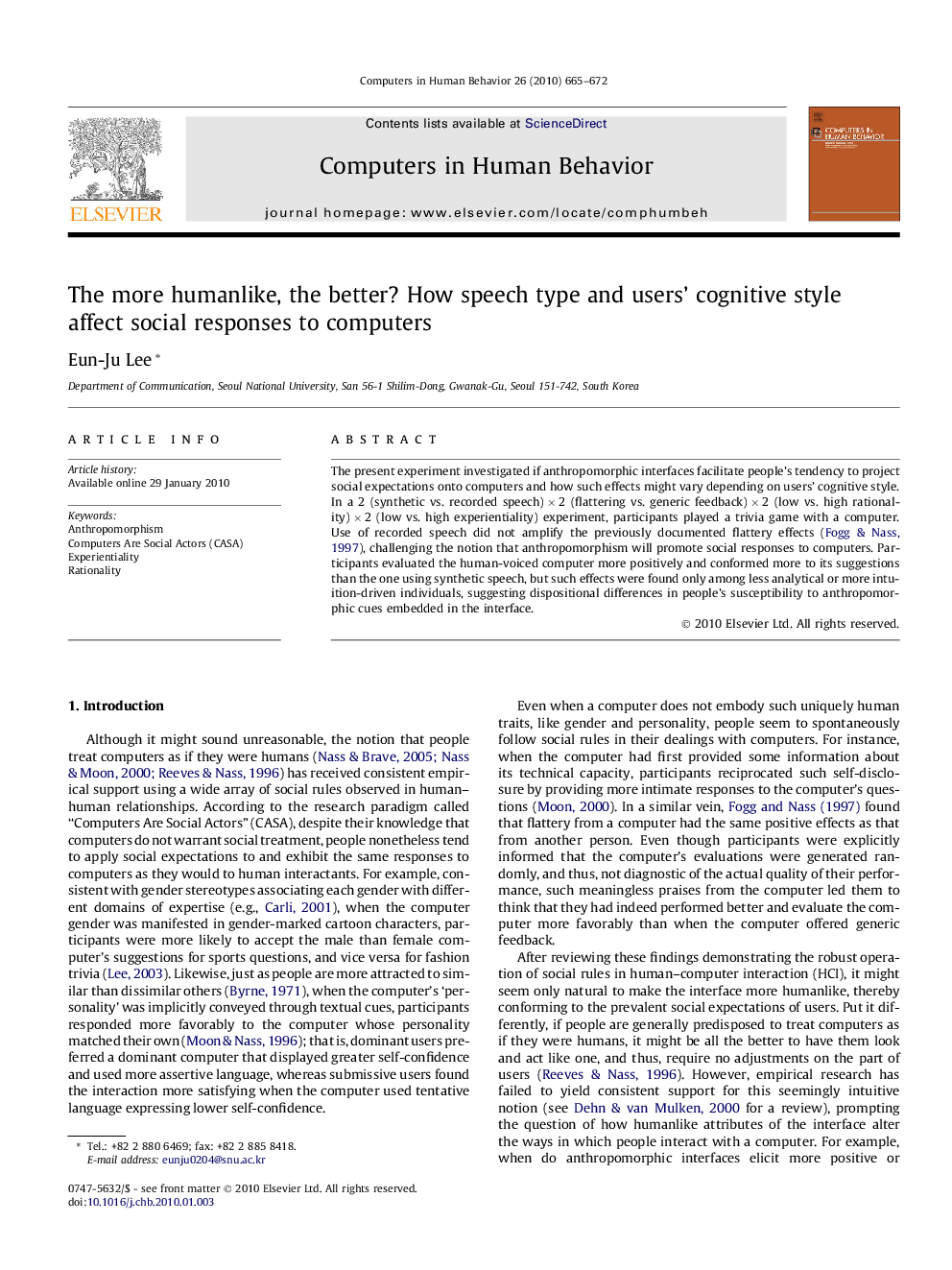| Article ID | Journal | Published Year | Pages | File Type |
|---|---|---|---|---|
| 351992 | Computers in Human Behavior | 2010 | 8 Pages |
The present experiment investigated if anthropomorphic interfaces facilitate people’s tendency to project social expectations onto computers and how such effects might vary depending on users’ cognitive style. In a 2 (synthetic vs. recorded speech) × 2 (flattering vs. generic feedback) × 2 (low vs. high rationality) × 2 (low vs. high experientiality) experiment, participants played a trivia game with a computer. Use of recorded speech did not amplify the previously documented flattery effects (Fogg & Nass, 1997), challenging the notion that anthropomorphism will promote social responses to computers. Participants evaluated the human-voiced computer more positively and conformed more to its suggestions than the one using synthetic speech, but such effects were found only among less analytical or more intuition-driven individuals, suggesting dispositional differences in people’s susceptibility to anthropomorphic cues embedded in the interface.
